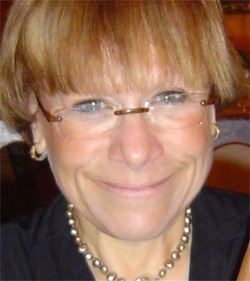FROM THE YELLIN CENTER NEWSLETTER - SPRING 2014
Coaching and Consultation for Executive Function Difficulties
|
The practice of executive skills is key to developing the mental strategies necessary to thrive in school and the workplace.
For the past several years, Dr. Terry Edelstein has located her independent Executive Coaching practice in the Yellin Center office suite. As she explains, her work helps both children and adults master the organizational skills needed for success in school and work. We enjoy having her as both a resource and a neighbor.
Executive functions are the ways that individuals manage their cognitive resources to achieve their goals. They are the neurologically-based competencies that are the basis for self-regulation and mental control. The practice of executive skills is key to developing the mental strategies to support higher order cognitive skills and to thrive in school and the workplace. The goals of practicing executive skills are to develop sequential methods of thinking and demonstrate fluency in brain based strategies. Fluency is the floor on which complex problem solving is built. Like in the exercise of any muscle, it is practice and repetition over time which strengthens the neural pathways in the brain and builds fluency. The individual then has sufficient cognitive energy to exercise their creative intellect to invent novel resolutions to challenging problems. When I work with students and adults, we focus on the executive functions to help develop effective problem solving skills, improve information retention and recall, and enhance analytical and creative thinking. My work with individuals struggling with Executive Function has two primary components – Academic Coaching and Consultation. Academic Coaching provides instruction, modeling and practice in learning paradigms. The strategies learned in coaching sessions address cognitive flexibility, working memory and use of cognitive maps for thoughtful, well-planned production. A student's homework and test schedule, or an adult's work objectives, provide the context for developing individualized organizational strategies. Therefore, the process of initiating tasks, cognitive mapping, memory retention and self-monitoring emerge in a natural and logical order. Academic coaching, like athletic coaching, is a structured, sequential training program. Consultation provides a link among individual coaching and reinforcement of strategies and the client's relevant environments, as appropriate. The first step in working with an individual is generally an individual profile derived from psycho-educational assessments, which targets needs for analytical problem solving and organization. Brain-based strategies are taught in the context of private coaching, which directly relate to work or academic needs. Technical tools and cognitive maps are used to enhance weak working memory and self-monitoring techniques are formulated to evaluate progress. Consultation services are a key component of this approach to intervention. Consultation or phone networking ensures consistent reinforcement. In addition, development of an effective learning plan for school students requires the input of teachers plus a review of the educational and psychological evaluations. Regular communication is basic to coordinating practice of new strategies in the context of the curriculum. Parents, tutors, and educators are first responders and primary reinforcement agents of new strategies. A consultation network protects a student from falling through the cracks of intersecting systems. Success is linked to allowing sufficient time for new behaviors to become established before more sophisticated strategies are introduced. Since the executive functions continue to develop into early adulthood, Academic Coaching is an effective tool for acquiring skills and learning strategies at the secondary, post-secondary and graduate levels. Individuals in their middle years attest to the utility of cognitive strategies in improving memory retention in the professional domain. If you believe you or your child can benefit from Executive Function Coaching and Consultation, please contact me for more information on this process and my practice. ABOUT THE AUTHOR
|
SHARE WITH FRIENDS & FAMILY
Return to Newsletter |



